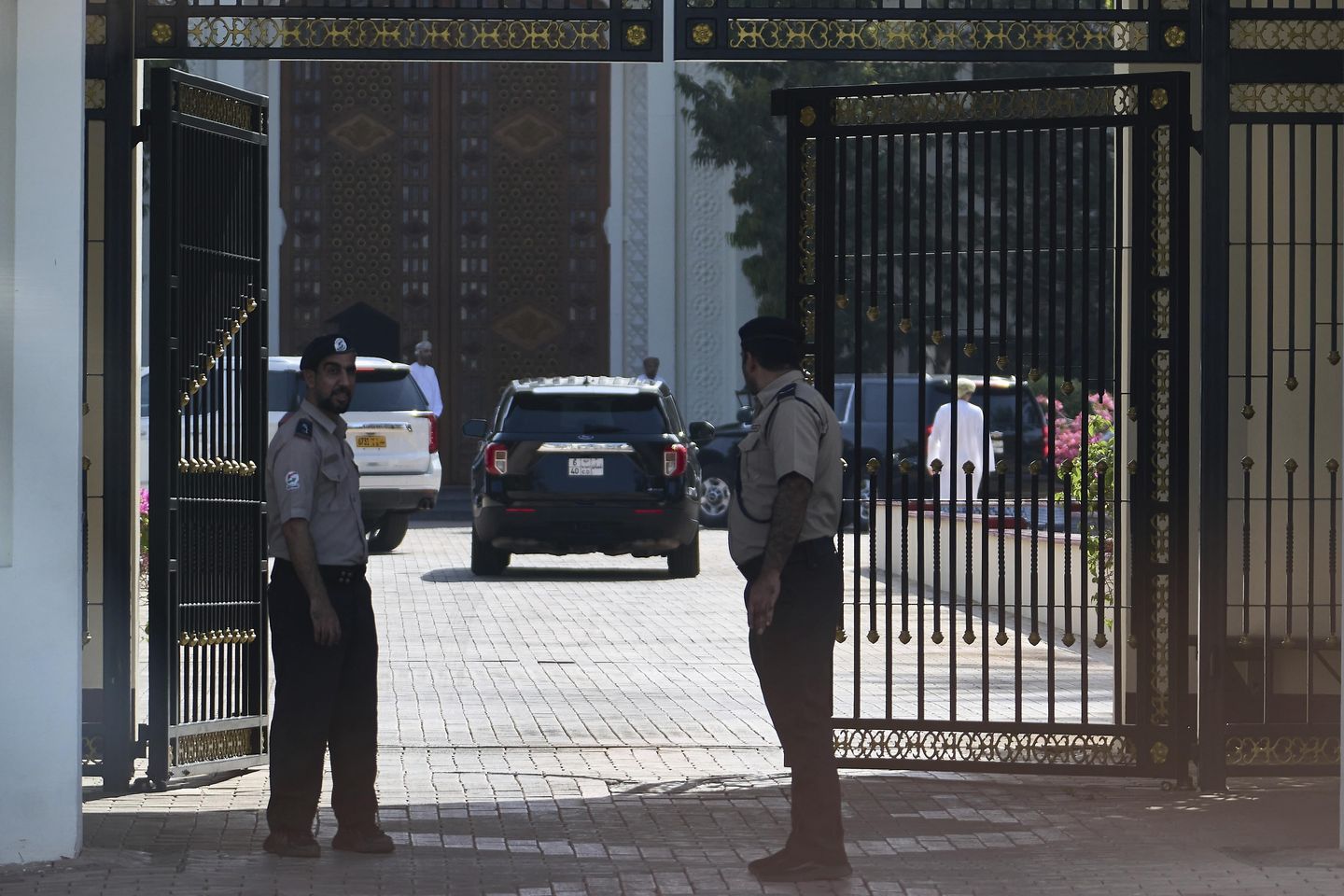
Iranian officials said Sunday they were prepared to meet with the United States next week for a second round of talks in the high-stakes effort to reduce or eliminate Tehran’s nuclear capabilities.
Steve Witkoff, President Trump’s special envoy to the Middle East, met with Iranian Foreign Minister Abbas Araghchi for talks Saturday in Oman, facilitated by that Arab country.
The two men met face to face and chatted for a few minutes after indirect discussions through intermediaries, which constituted the bulk of the meeting. The brief meeting was the first between the two nations’ officials since the Obama administration.
Iranian officials described the talks positively and said that both sides are close to reaching a framework for further negotiations and agreed to meet again next Saturday.
A Foreign Ministry spokesman said the nuclear talks are a sign that Iran is “giving diplomacy a genuine chance.”
“The U.S. should value this decision formed despite their confrontational hoopla. We will not prejudge (and) we will not predict,” spokesman Esmaeil Baqaei said on social media. “We shall reflect and respond accordingly.”
The bottom-line goal for the White House is a guarantee that Iran remains unable to construct a nuclear weapon, dismantles its nuclear stockpile and abandons its missile program.
Mr. Araghchi said Saturday’s talks were conducted in an atmosphere of mutual respect. He told the state-owned Islamic Republic News Agency that he provided Iran’s viewpoints to the American side in a “firm yet forward-looking manner.”
“We had about two and a half hours of indirect talks in a calm and respectful manner, with no inappropriate language used,” Mr. Araghchi told IRNA.
A White House statement Saturday called the discussions “very positive and constructive,” while Mr. Trump later told reporters on Air Force One that the talks are “going OK.”
He cautioned that “nothing matters until you get it done” but “the Iran situation is going pretty good, I think.”
Tehran’s negotiating team said the country’s nuclear program is the only issue up for discussion. That means Iran is unlikely to entertain negotiations on other hot-button security topics, such as the country’s ballistic missile program, its past support for terror groups like Hamas and Hezbollah, and its decision to supply combat drones to Russia.
Critics of the Iranian regime say the U.S. and Israel are correct in demanding the full, verified, and permanent destruction of Iran’s proliferation-sensitive nuclear facilities. They insist that Iran should no longer have continued access to any capability to make fuel for, construct, and deliver nuclear weapons.
“Tehran is defining the acceptable and unacceptable demands of a nuclear deal and magnifying hardline opposition to talks to force concessions from Washington,” said Behnam Ben Taleblu, senior director of the Iran Program at the Foundation for Defense of Democracies, a Washington think tank.
He said Iran’s negotiators are interested in discussing only limited arms-control measures rather than a disarmament or dismantlement of Tehran’s nuclear infrastructure.
“Should they achieve this, it would be a significant win for the regime. The U.S. negotiating team must hold firm,” Mr. Taleblu said.
Israeli Prime Minister Netanyahu said he and Mr. Trump have the same vision for an Iran without nuclear weapons. It can be carried out only by an agreement similar to the one used in Libya, where nuclear facilities were destroyed and equipment dismantled under U.S. supervision, he said.
In another scenario, Iran “simply drags out talks, and then the option is military. Everyone understands this,” Mr. Netanyahu said, according to the Times of Israel.
Iranian Supreme Leader Ali Khamenei criticized Western powers who consider themselves entitled to possess the deadliest types of weapons yet forbid “independent nations” from owning “defensive weapons.” He said Iran’s foes are jealous of its progress in several fields, especially the defense sector.
“The armed forces are the country’s shield and a refuge for the nation against any aggressor,” Mr. Khamenei said Sunday, according to IRNA.
Before leaving for Saturday’s negotiating trip to Oman, Mr. Witkoff told The Associated Press that the White House has a clear “red line” that begins with dismantling Iran’s nuclear program.
“That doesn’t mean, by the way, that at the margins we’re not going to find other ways to find compromise between the two countries,” he said.















